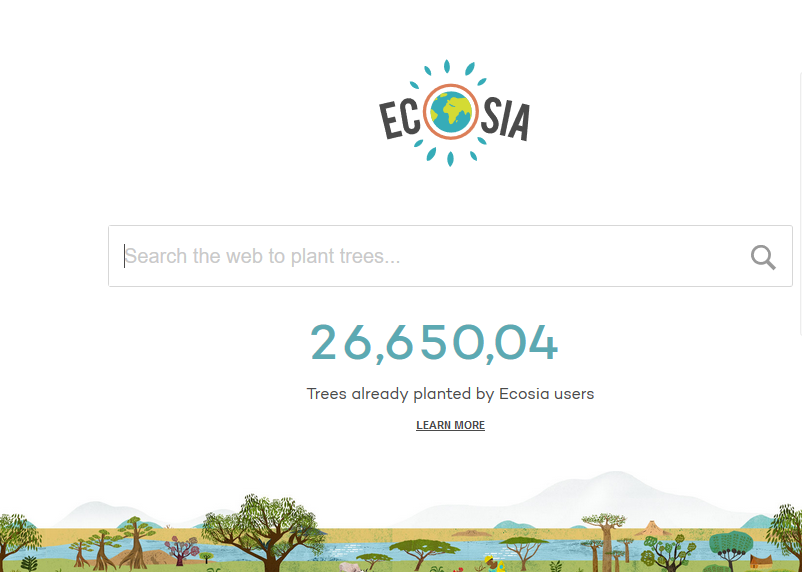Your cart is currently empty!

Optimizing for Ecosia
Ecosia is a relatively new search engine that promises to “start planting trees with every search” made at their website. Over the past few months, we’ve been seeing more traffic from Ecosia in Google Analytics.
Not a lot of traffic, but enough that we wondered whether optimizing for Ecosia might become more important in the future.
Get to know Ecosia
Ecosia is a Berlin-based search engine that uses Bing and its own algorithms to search. It doesn’t plant a tree for every search, as some people think. Ecosia donates funds from its ad revenue. The ads are served by Bing and Ecosia gets a few cents every time someone clicks on those ads.
Ecosia figures that it takes about 45 searches to pay for a tree with those ads commissions.
If you’re going to search, though, you might as well search with an organization that plants trees, right?
Maybe. We wanted to see how Ecosia compared with other search engines, and also to find out whether anyone had already looked into SEO strategy for Ecosia, so we used that search.
bing results

Ecosia results

Google results

Do you need to optimize for Ecosia?
This is a reasonable question, and we have two good reasons for saying :no.”
First, Google’s market domination is so complete that optimizing for Google is really the only approach that makes sense. Unless you’re talking to a very special group of people, the percentage using Ecosia is minuscule compared with those using Google.
Second, Ecosia uses Bing’s search engine. Optimizing for Bing should cover Ecosia, too.
However, we noticed that the results for our search from Bing and Ecosia were not identical. Perhaps this is because Bing is doing some personalization and Ecosia is not. There is a slight difference, however.
We also noticed that Google gave us better results, and was in fact the only search engine that offered us anything at all related to our question.
What do you learn if you click through to Ecosia’s Zendesk response to “How do I get listed?”? A link to Bing’s SEO recommendations.
So how do you optimize for Ecosia?
Here’s what we’ve discovered about the highest ranking websites at Ecosia:
- High authority websites like the Centers for Disease Control and HealthyChildren.org show up ahead of low authority sites like ThinkTwice.org. This suggests that links and other authority markers are probably used by Ecosia.
- Number of words in a page or post seems less important than at other search engines.
- Specific terms seem more important — Google is more likely to show sites that answer your question without using the same phrase you used.
- Sleazy old-school keyword stuffing works at Ecosia.

Now what?
You could, if for some reason you think your ideal customer is using Ecosia, try keyword stuffing and see whether the lift at Ecosia makes up for the drop at Google. However, the other differences we noticed don’t seem significant, and higher authority websites often do better at Ecosia anyway — just as they do with Google.
We say let it go. If you disagree, we’d love to hear from you!
by
Tags:
Comments
2 responses to “Optimizing for Ecosia”
I dont rank at Ecosia – I do not say at all, but for hardly any keywords. Even if I rank #1 for Google, I do not rank in the top 100 for Ecosia….very frustrating (I also do not do well on Bing). At least it is not only about TripAdvisor but it still doesn’t give great results.
First, be glad to know that Google has such enormous market share that not ranking at Ecosia probably won’t have an effect on your bottom line. Second, while I enjoyed your website, it’s “over-optimized” by Google’s standards. Your article on women’s travel wallets, for example, uses the term “women’s travel wallet” so frequently that it sounds unnatural. You’re in a very competitive space, so it might be worth specializing a bit more. You didn’t ask for advice, I know, but I hope you don’t mind that I gave you some!

Leave a Reply